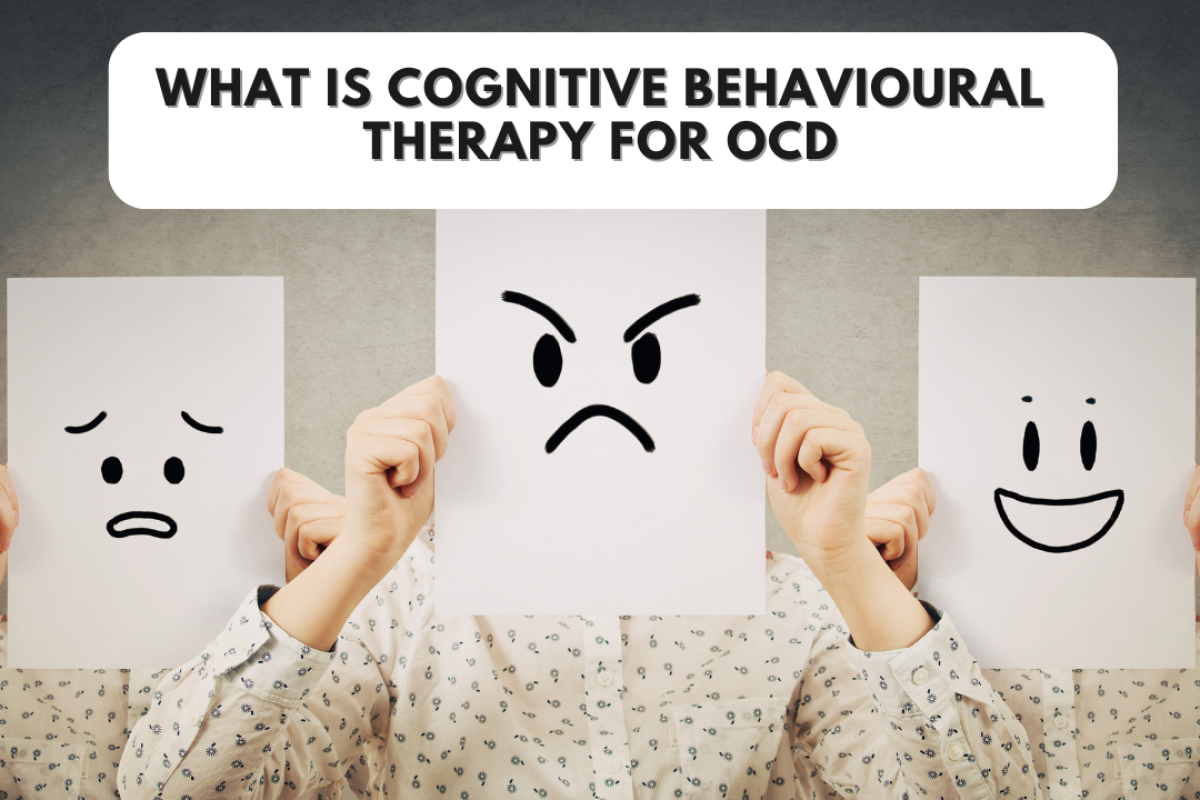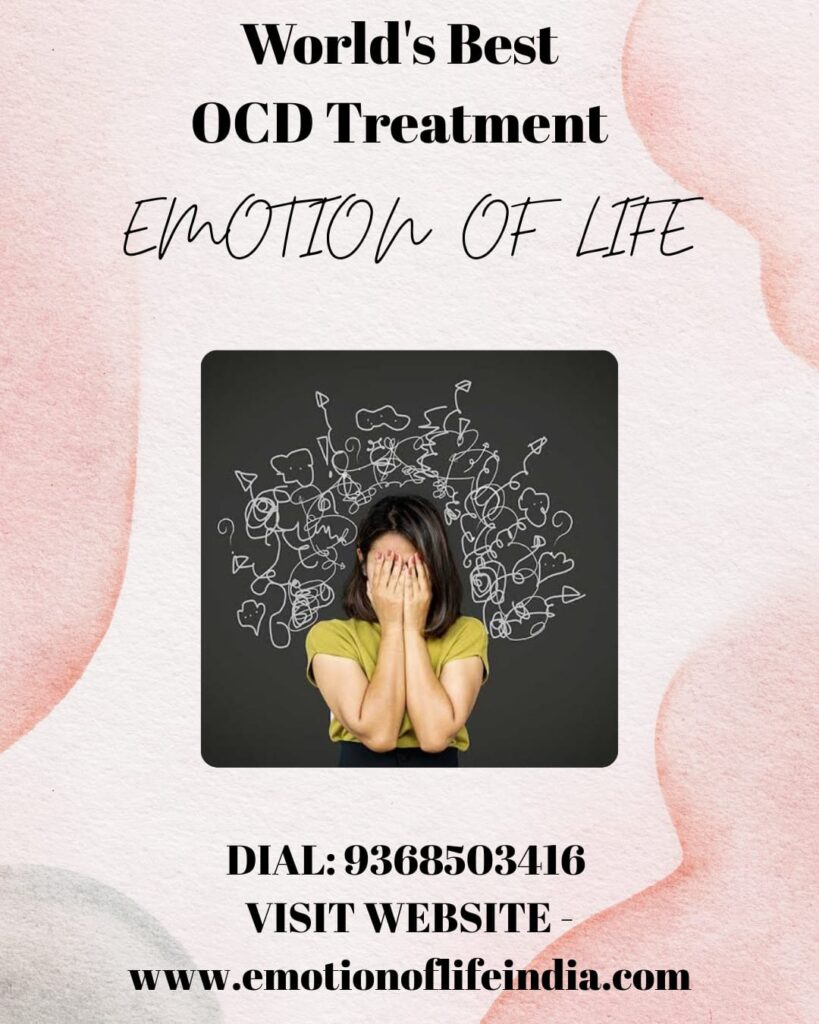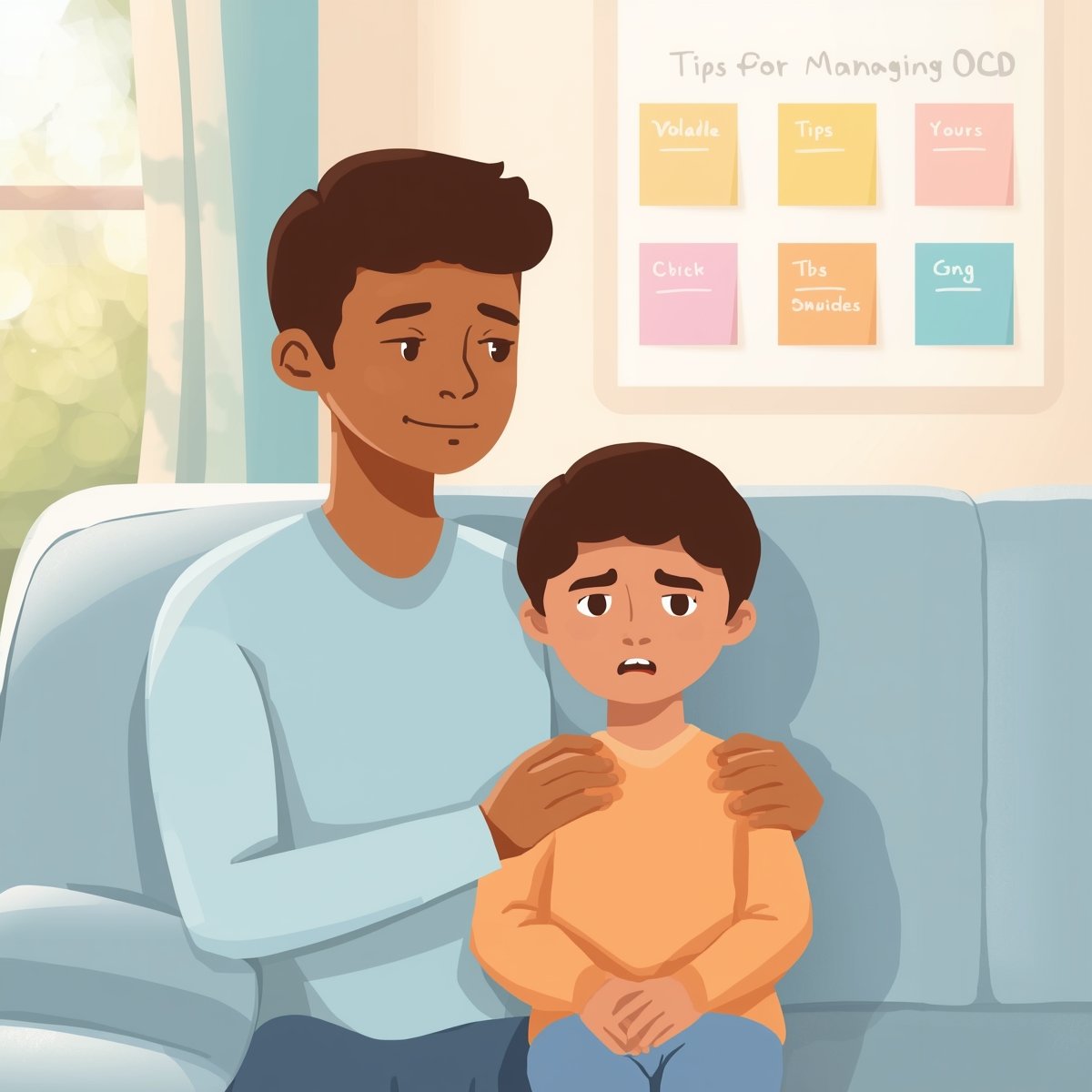What is Cognitive Behavioural Therapy for OCD?
Obsessive-compulsive disorder (OCD) is a health problem that causes millions of individuals worldwide to suffer. Fortunately, certain forms of treatments, such as Cognitive Behavioural Therapy for OCD, can provide this foot in the door to hope as well as conventional relief. In this article, we aim to give you the best information and advice for managing OCD through Cognitive Behavioural Therapy, explained as simply as possible.
What is OCD?
Obsessive Compulsive Disorder, or OCD, is a common and long-lasting disorder. It causes a person to have uncontrollable, reoccurring thoughts (obsessions) and behaviours of anxiety that they feel the need to repeat over and over. These often occur in practical situations, such as in day-to-day life, relationships, and your workplace. Finally, the last step is to use exposure response prevention, in which you expose yourself to your obsessions without performing compulsions.
Obsessions: These are recurrent, unwanted thoughts or urges (e.g., fear of germs).
Compulsions: Repetitive behaviours that one performs in an attempt to reduce anxiety (e.g., washing hands again and again to stop the anxious mind).
What is CBT Therapy for OCD?
CBT treatment for OCD is a type of talk therapy that focuses on changing how thought patterns control behaviour. It focuses on helping individuals understand how their thoughts, feelings, and actions interact. CBT seeks to help people with OCD break the cycle of obsessive thoughts and compulsive actions—a way to regain control. CBT is known as one of the most effective therapies for OCD. It works by gradually teaching people to recognize their irrational thoughts and face them through purposeful exposure without giving in to compulsion.
How Does CBT Help with Obsessive-Compulsive Disorder?
The most common form of CBT therapy for OCD revolves around Exposure and Response Prevention (ERP). ERP puts the person in a position to be challenged by what they are frightened of—without resorting to compulsive behaviours that previously helped reduce anxiety.
How ERP Works in CBT Treatment for OCD:
- Exposure: Gradual exposure to situations or thoughts that trigger obsessions. This is done safely under a therapist’s guidance.
- Treatment Intervention: The person is encouraged to refrain from performing their compulsive behaviours. Over time, they learn that anxiety naturally decreases without rituals, and nothing bad happens when they resist compulsions. For example, someone with germ phobia might touch a doorknob and not wash their hands afterward, noticing their anxiety reduces on its own.
Why CBT Works for OCD
Cognitive Behavioural Therapy for OCD works effectively because it addresses both obsessive thoughts and compulsive actions. CBT helps individuals recognize their obsessive thoughts and challenge them logically, reducing their impact on daily life. Unlike some treatments that only mask symptoms, CBT provides individuals with long-term coping strategies that make improvements sustainable.
What to Expect from CBT Therapy for OCD
Here’s what you can expect during CBT therapy for OCD:
- Initial Evaluation: The therapist assesses specific obsessions and compulsions, their impact on daily life, and creates a tailored treatment plan.
- Goal Setting: Realistic objectives are set, such as reducing time spent on compulsions or decreasing anxiety related to obsessions.
- Exposure and Response Prevention (ERP): Gradual exposure to feared situations while resisting compulsive responses.
- Homework: Clients practice techniques outside sessions, such as entering feared situations or resisting certain rituals.
- Tracking Progress: Therapists monitor changes and adjust interventions for continuous recovery.
Other Conditions Treated by CBT
Though CBT is highly effective for OCD, it can also be used to treat a range of other conditions, including:
- Anxiety
- Depression
- Eating disorders
- Phobias
- Panic attacks
- Stress management
- Chronic pain
- Relationship problems
CBT helps individuals address the negative thought patterns contributing to these issues, providing them with tools to manage symptoms and improve emotional health.
Finding a CBT Therapist for OCD
- Look for a specialist: Choose a therapist experienced in OCD and CBT who incorporates ERP techniques.
- Ask about their approach: A good therapist will clearly explain how CBT and ERP work and tailor them to your needs.
- Check credentials: Ensure the therapist uses evidence-based methods and has a solid background in cognitive behavioural therapy.
Challenges with Cognitive Behavioural Therapy
- Change takes time: Progress is gradual and requires patience and consistency.
- Active engagement: Clients must be willing to face their fears and challenge irrational thoughts.
- Structured approach: CBT’s organized nature may not fit everyone, but its structure makes it highly effective for OCD.
Conclusion
Cognitive Behavioural Therapy for OCD is a structured and highly effective treatment method that helps individuals recognize and challenge obsessive thoughts and compulsive behaviours. It empowers people with lifelong skills to manage anxiety and reduce OCD symptoms naturally.
If you or someone you know is struggling with OCD, consider consulting a qualified CBT therapist. OCD is a treatable condition, and with the right therapy and support, long-term recovery is achievable.
Emotion of Life is dedicated to helping individuals overcome OCD through structured CBT and ERP sessions. You are not alone—help is always available. Our therapists provide compassionate, evidence-based care to help you regain control of your life.
Frequently Asked Questions (FAQ) – OCD Recovery with CBT at Emotion of Life
Can OCD really be treated without medicine at Emotion of Life?
Yes. At Emotion of Life, we specialize in treating OCD through Cognitive Behavioural Therapy (CBT) and Exposure & Response Prevention (ERP) without relying on medication. Under the guidance of OCD Specialist Shyam Gupta, many clients have fully recovered by following our structured 16-Step OCD Recovery & Cure Program with daily sessions and progress monitoring.
How long does it take to recover from OCD with CBT at Emotion of Life?
Every client’s journey is unique, but on average, clients who commit to our 100 Days – 100 Sessions Program report significant improvements in 3–4 months. With consistency and therapist support, many achieve long-term recovery within this period.
What makes CBT at Emotion of Life different from other therapies?
Unlike generic therapy, our CBT approach is personalized and integrated with ERP exercises. Sessions are daily and include continuous monitoring, allowing us to track even small changes. This structure, combined with Shyam Gupta’s expertise, makes the recovery process more reliable and faster than irregular or unstructured therapy models.
Can children and teenagers also benefit from CBT therapy at Emotion of Life?
Absolutely. We work with clients of all ages, including children, adolescents, and adults. Our child-focused CBT sessions use gentle, structured methods to help young clients manage OCD without medication while involving parents in the recovery process.
What if my OCD symptoms return after treatment?
Relapse prevention is a core part of our 16-Step Program. We teach clients strategies to identify early warning signs and manage them before they escalate. Our success stories show that with proper follow-up and continued practice, long-term recovery is not only possible but sustainable.
Success Story 1 – Overcoming Harm OCD with CBT at Emotion of Life
Aarav, a 24-year-old engineering student from Delhi, came to Emotion of Life with severe Harm OCD. He was terrified of unintentionally hurting others and often avoided sharp objects or social interactions. The guilt and fear left him exhausted, affecting his studies and friendships.
With OCD Specialist Shyam Gupta’s CBT and ERP-based program, Aarav faced his fears step by step. He was guided through daily sessions that helped him resist compulsions, challenge irrational fears, and rebuild confidence.
Aarav’s words: “Today, I no longer avoid life because of my fears. Shyam Gupta sir’s CBT sessions at Emotion of Life gave me back my confidence. I can focus on my career and relationships without OCD controlling me.”
Success Story 2 – Recovery from Religious OCD with CBT at Emotion of Life
Meera, 28, a teacher from Lucknow, struggled with Religious OCD for over a decade. She felt compelled to pray excessively, confess repeatedly, and feared punishment for unintentional mistakes in her spiritual practice. This obsession consumed hours of her day and left her anxious and guilty.
When she joined Emotion of Life, her treatment was led by Shyam Gupta using CBT with ERP exercises. She gradually reduced compulsive prayers, learned to tolerate guilt, and built healthier spiritual practices.
Meera’s words: “I thought my life would always be stuck in fear and rituals. But with daily CBT therapy at Emotion of Life, I regained peace and balance. Shyam Gupta sir helped me see that I can live spiritually without OCD controlling me.”









